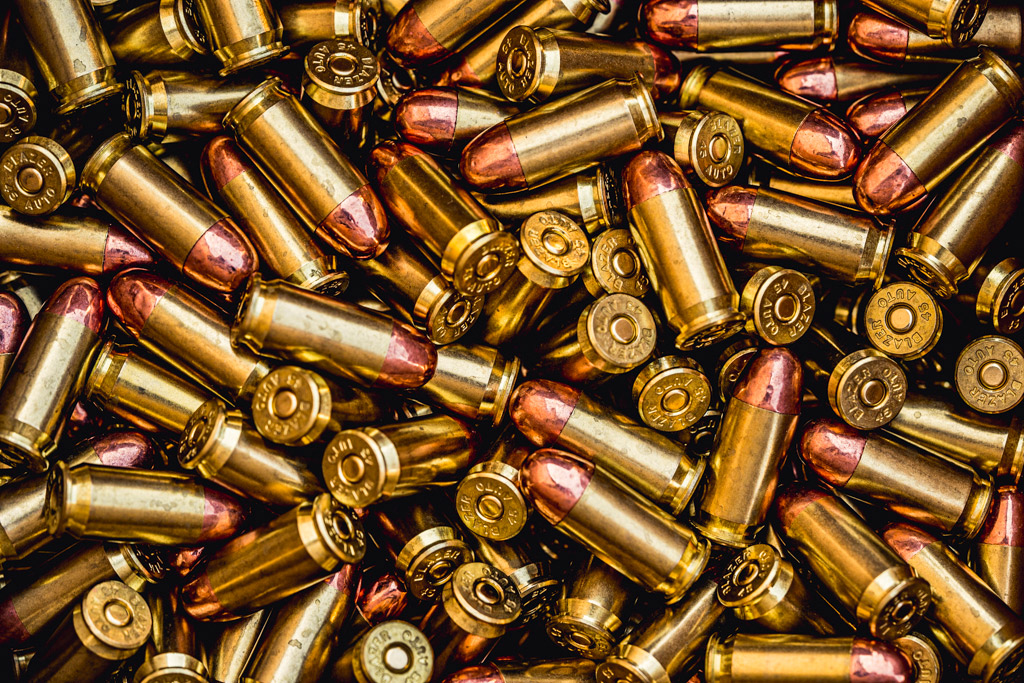The Ultimate Guide To Ammunition Pro Llc
The Ultimate Guide To Ammunition Pro Llc
Blog Article
The Single Strategy To Use For Ammunition Pro Llc
Table of ContentsSome Ideas on Ammunition Pro Llc You Should KnowThe Best Guide To Ammunition Pro Llc6 Simple Techniques For Ammunition Pro LlcAll About Ammunition Pro LlcNot known Details About Ammunition Pro Llc
The standard components of ammo are the very same for rifle, gun, and shotgun ammo. Today we're looking at the what the basic parts of ammunition are and exactly how they work with each other to fire a round.The bullet is seated in the open end of the instance. When you terminate a bullet out of a semi-auto weapon, the weapon's extractor raises the situation from the firing chamber and it flies out of the gun.
A weapon's shooting pin strikes a cartridge's primer. The primer is a steel mug that holds an eruptive chemical substance. When the firing pin strikes the guide cap, it squashes the priming compound versus the anvil. This produces a small explosion in the situation that sparks the propellant. The primer is situated in the rim of the instance of a rimfire cartridge.
A Biased View of Ammunition Pro Llc
Both typical sorts of primers in centerfire cartridges are Berdan and Boxer guides. Gunpowder alongside the instance that usually has it. Powder, additionally referred to as propellant or gunpowder, is a fast-burning chemical combination. The primer surge ignites it. It is normally a mix of saltpeter, charcoal, and sulfur.

We call the projectiles for shotshells, which we fire via shotguns, slugs and shot. A slug is one strong item, usually made out of lead. Shot is a group of pellets constructed out of lead, steel, bismuth, or tungsten alloy. Shot pellets can can be found in different dimensions and amounts. Currently that you have a basic understanding of the standard parts of ammunition, you can really feel a little a lot more positive in how your weapon and ammo feature!.
The Definitive Guide to Ammunition Pro Llc
Keep up with Special Deals, Advancement Notice of Sales, and Store Occasions
Fun reality: Grains are utilized to define the mass of a bullet due to the fact that completely back in the early days of firearms, it was an apothecary's system of measurement, and a common denominator was required to determine just how much bring about use to make cast lead bullets (Buy Ammo Online). 'Grains' as a device of measure for weight goes all the method back to ancient times, and stands for the weight of a grain of wheat

(https://replit.com/@ammunitionproll)For reference, the weight of a paper clip is around 16 gr. So, we understand that grains are a measure of mass, and more = larger, and heavy is great, ideal? Yes, heavy is excellent, yet mass of the projectile isn't the only thing you require to take into consideration when picking a round for your weapon.
The Greatest Guide To Ammunition Pro Llc
Enjoyable truth, this is the beginning of the term "Rifle" ex-spouse. The impact this spin has on projectiles is a supporting one the bullet revolving keeps the nose aimed directly, in the very same method that a completely spiraled football toss is going to be much more stable and exact in flight than an unsightly duck, end over end toss.
How does this relate to grain weight? Envision you're on one of those playground slide carousels, the ones with bars you hold on to while it rotates.
The very same effect happens with bullets. The much heavier the projectile, the more effect a quicker rotate will certainly have on it.
How Ammunition Pro Llc can Save You Time, Stress, and Money.
There's one more aspect that we have to consider when selecting a grain weight for our ammo. As hinted at above, bullet velocity, or the speed of the projectile, is a significant factor when identifying the best grain weight projectile to use. Velocity is influenced by a couple of significant factors, including the type and amount of propellant (gunpowder), barrel size, and bullet weight.

The most common grain weight rounds for 9x19mm cartridges are 115gr and 124gr. These are usually lead core, completely jacketed (FMJ) rounds. Both of these grain weight cartridges will carry out well in factory 9mm pistols, to normal gun ranges (as much as 50 yards). 115 grain rounds are the most usual (and consequently least pricey).
Report this page